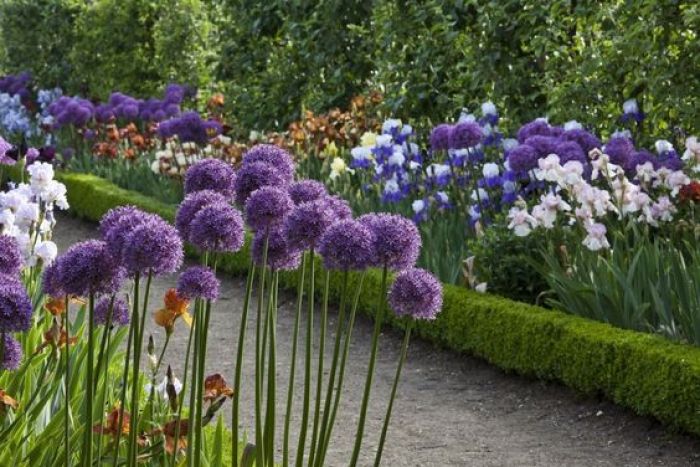How to cultivate allium the ball-like flower – great ideas for your garden
Allium is a genus of monocotyledonous flowering plants that includes hundreds of species, such as onions, garlic, leeks and chives. Decorative alliums are members of the same genre. Smell a bulb, cut a stem or crush a leaf and the connection is obvious.

Water lily, a flower in the water and a great decoration for your garden
In the garden, these ball-like flowers have a look that is both noble and playful.
An allium flower head is a cluster of individual small flowers. The overall shape may be round, oval or overlapping, and the color of the flower may be white, yellow, pink, purple or blue. Heights also vary, with some flower stems being very small (10-15 cm) and others quite tall (100-120 cm). Each type of allium adds its own distinct style and personality to the garden.

How to plant
Alliums grown from bulbs are planted in autumn until the first frosts.
The size of the bulb determines the planting depth. The large bulbs should be 12 to 18 cm deep, while the smaller bulbs should only be 8 cm deep. The lilies in the garden are not at risk of being eaten by animals as the onion taste is not popular with animals.
Most alliums bloom in late spring, along with the latest tulips and before the irises and peonies. The flowers last for weeks and seem to hover over the garden like balloons. After flowering, both flowers and foliage fade and allow summer perennial plants to be in focus. The alliums are suitable for rock gardens, where they thrive in well-drained pockets between the rocks. Choose smaller size items.
Alliums are great for cut flowers. Their rigid stems make it easy to plant and the flowers are very long lasting.
Many alliums grow well in pots, planted on their own or mixed with other plants. When it comes to bloom, you can move the can to a prominent spot where it will be easy to admire the flowers.
Wisteria – a rainbow waterfall of bright colors and flowers in your garden

What to expect
Alliums usually produce leaves a month earlier before flower buds appear. In some species, the foliage begins to turn yellow and die before the flowers wither. To hide this fading of the foliage, plant the bulbs among other plants that will cover the dead leaves. Good companions for the Alliums are host, stilb and perennial geranium.
Expect to see many pollinators when your Alliums are in bloom. These bulbs are a great addition to any kind of garden.
Most alliums are perennial. This means they are resistant to winter and you do not need to dig out the bulbs that will bloom in your garden next spring.
When the alliums are blown, you can remove the heads or leave them in place. Many gardeners find that seed heads are an interesting decorative feature. Depending on your climate, they can last until early autumn.

















Images Via







2 comments
[…] onions – Alliums, are of great variety and are able to decorate any garden with bright balls of their […]
[…] onions – Alliums, are of great variety and are able to decorate any garden with bright balls of their […]
Comments are closed.